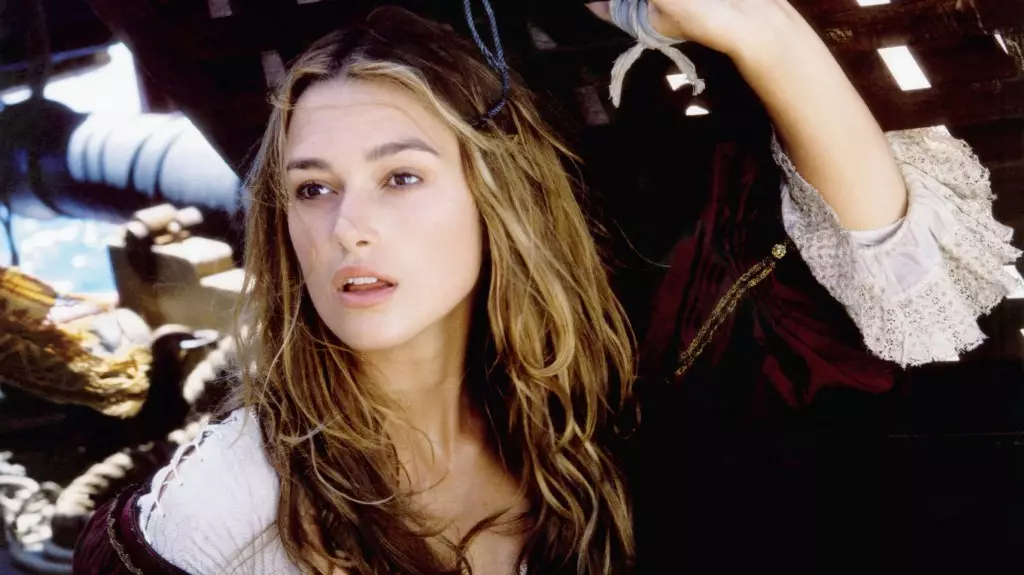From her early days as the daring Elizabeth Swann in *Pirates of the Caribbean*, Keira Knightley’s rise to fame has been nothing short of meteoric. Having burst onto the scene at just 17, Knightley quickly became a household name, embodying iconic roles in films that have shaped modern cinema, such as *Pride & Prejudice* and *Atonement*. However, the same spotlight that catapulted her to success has also come with significant challenges. Speaking candidly in a recent interview with The Times of London, Knightley reflects on her complex relationship with the franchise genre, ultimately deciding that her time within that world is over.
Knightley’s frustrations stem from the intense scrutiny and pressures of being a leading actress in blockbuster films, particularly in an industry that often fails to protect the mental health of its stars. The irony of her success lies in the fact that while the *Pirates* films brought her high visibility, they simultaneously exposed her to public judgment and scorn. “I was seen as sh*t because of them,” Knightley lamented, illustrating the paradox of her experiences. The very projects that secured her career also subjected her to a cyclone of criticism, leaving an imprint on her psyche.
The extensive demands tied to franchise films are another deterrent for Knightley. In her interview, she elaborates on the grueling schedules that monopolize an actor’s life. “The hours are insane. It’s years of your life, you have no control over where you’re filming, how long you’re filming, what you’re filming,” she asserted, highlighting a reality many in her position face. Such conditions can compound the pressures of fame and lead to a profound sense of loss of agency, something Knightley has decided to prioritize moving forward in her career.
With her decision to step back from sprawling, franchise-based projects, Knightley aims for greater artistic control and a balanced life. Her passion for storytelling remains, but she seems poised to embrace roles that offer more satisfaction rather than simply riding on the coattails of popularity. This critical pivot demonstrates her awareness of what it means to prioritize personal well-being over commercial success—an approach not commonly adopted in Hollywood’s relentless chase for box office receipts.
In a time when discussions surrounding mental health and body image have gained visibility, Knightley’s reflections on her experiences present a poignant commentary on the industry’s evolution—or lack thereof. She speaks candidly about the public shaming she faced, particularly concerning tabloid speculations about her body. “I knew I wasn’t,” she shared regarding claims of an eating disorder, pointing to the evident disconnect between public perception and personal reality.
Her words resonate throughout the industry, particularly for young actresses subject to similar pressures. Knightley’s acknowledgment of the trauma associated with fame offers a rare glimpse into the hidden scars that accompany a life lived under constant scrutiny. Reflecting on her experiences, she notes, “It’s obviously part of my psyche, given how young I was when it happened. I’ve been made around it.” This profound statement reveals both vulnerability and resilience, encapsulating the turbulent nature of navigating fame in such a youth-focused industry.
As Knightley prepares for the release of her upcoming Netflix series *Black Doves*, a six-part spy-thriller alongside Ben Whishaw, her shift away from the franchise sector signals a new chapter in her career. After taking time to focus on family, raising two daughters with her musician husband, James Righton, she seems reinvigorated and ready to take on fresh challenges.
In many ways, this evolution mirrors broader changes within Hollywood, as more actors seek to define their paths on their terms, moving away from traditional forms of success tied to major franchises. Knightley’s honesty about her struggles and evolutions marks her not just as a talented actress but also as a forward-thinking artist navigating the complexities of fame. As she continues to carve out her future in the industry, audiences can anticipate a more nuanced take on the roles she chooses, reflecting her values and experiences with resilience.

Leave a Reply